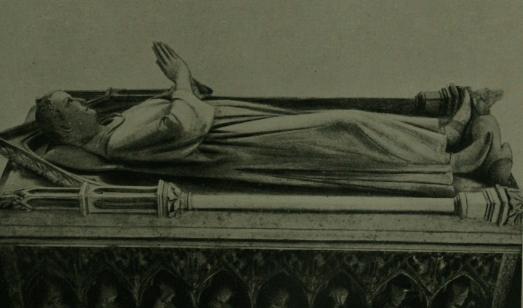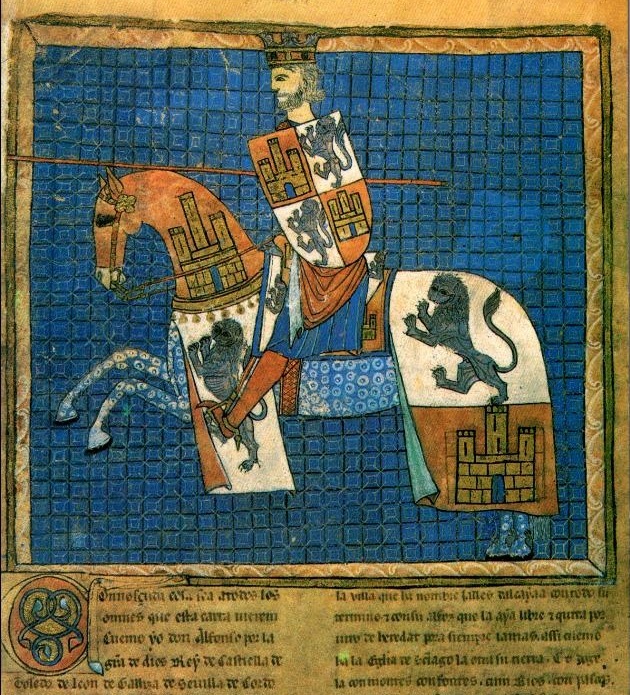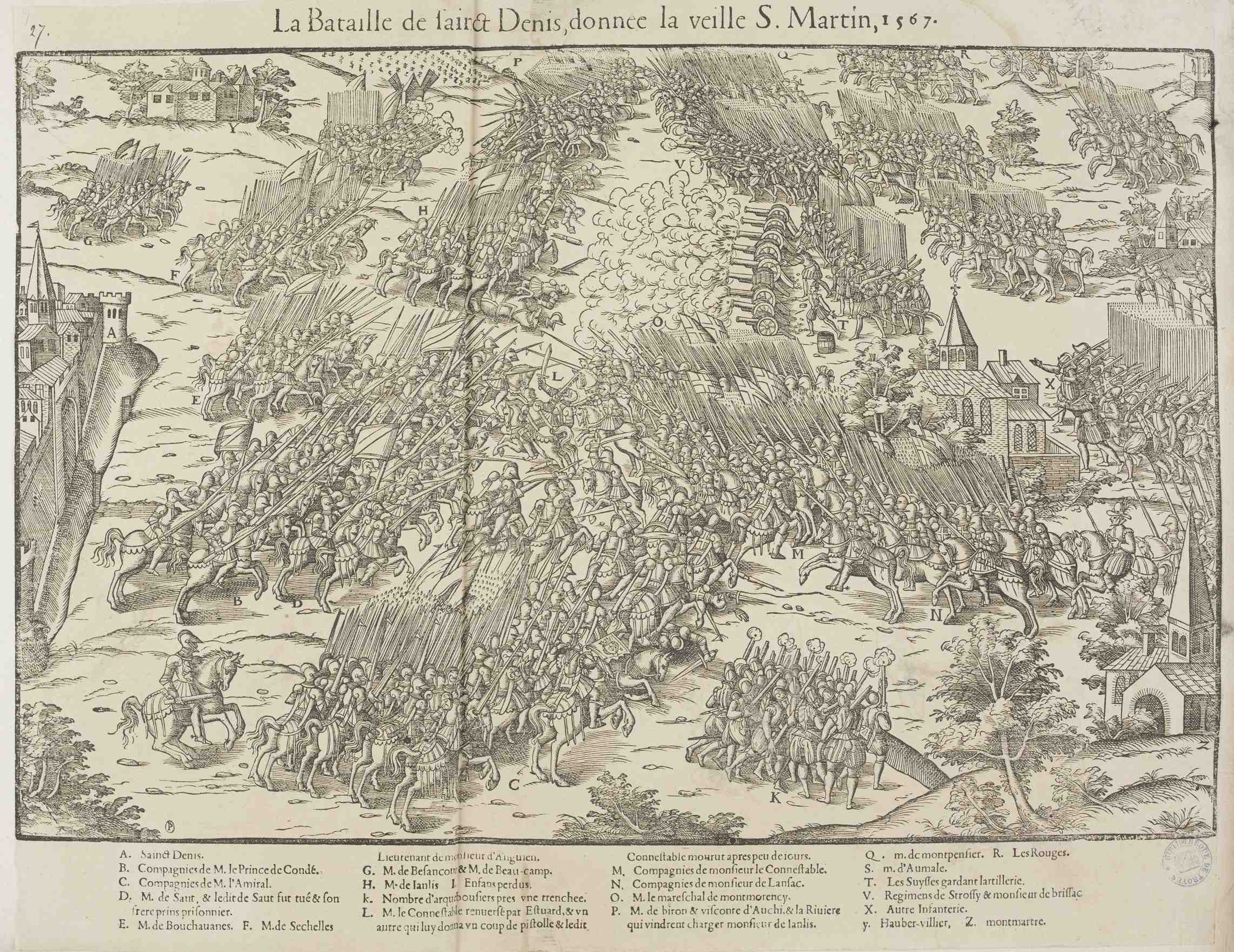|
Louis Of France (1244–1260)
Louis of France (21 or 24 February 1244 – 11 January 1260) was the eldest son of King Louis IX of France and his wife Margaret of Provence. As heir apparent to the throne, he served as regent for a brief period. Regency In 1248, King Louis and Queen Margaret traveled to Egypt to participate in the Seventh Crusade. During their absence, his grandmother, Blanche of Castile, acted as regent. However, when she died in 1252, his parents were still crusading and the eight-year-old Louis was appointed regent. He did not actually rule the country; real power was in the hands of a royal council, led by his uncles Alphonse and Charles. Nevertheless, royal deeds were sealed in his name, and correspondence to the government was addressed to him personally. The basis of the arrangement was the unwritten (at the time) principle of primogeniture in French law: in the absence of written instructions to the contrary, the king's eldest son automatically became regent during the kin ... [...More Info...] [...Related Items...] OR: [Wikipedia] [Google] [Baidu] |
Chartres Cathedral
Chartres Cathedral (, lit. Cathedral of Our Lady of Chartres) is a Catholic cathedral in Chartres, France, about southwest of Paris, and is the seat of the List of bishops of Chartres, Bishop of Chartres. Dedicated in honour of the Virgin Mary ('Our Lady'), it was mostly constructed between 1194 and 1220. It stands on the site of at least five cathedrals that have occupied the site since the Diocese of Chartres was formed as an episcopal see in the 4th century. It is one of the best-known and most influential examples of High Gothic and Classic Gothic architecture. It was built above earlier Romanesque architecture, Romanesque basements, while its north spire is more recent (1507–1513) and is built in the more ornate Flamboyant style. "[O]ne of the most beautiful and historically significant cathedrals in all of Europe," it was designated a World Heritage Site by UNESCO in 1979, which called it "the high point of French Gothic architecture, French Gothic art" and a "masterpiece ... [...More Info...] [...Related Items...] OR: [Wikipedia] [Google] [Baidu] |
Alfonso X Of Castile
Alfonso X (also known as the Wise, ; 23 November 1221 – 4 April 1284) was King of Castile, Kingdom of León, León and Kingdom of Galicia, Galicia from 1 June 1252 until his death in 1284. During the April 1257 Imperial election, election of 1257, a dissident faction chose him to be king of Germany on 1 April. He renounced his claim to Germany in 1275, and in creating an alliance with the Kingdom of England in 1254, his claim on the Duchy of Gascony as well. Alfonso's scientific interests—he is sometimes nicknamed the Astrologer (''el Astrólogo'')—led him to sponsor the creation of the Alfonsine tables, and the Alphonsus (crater), Alphonsus crater on the Moon is named after him. He also sponsored the work of historians who, for the first time since Isidore of Seville in , placed Spain in the context of world history. As a lawmaker he introduced the first vernacular law code in Castile, the ''Siete Partidas''. He created the Mesta, an association of sheep farmers in the cen ... [...More Info...] [...Related Items...] OR: [Wikipedia] [Google] [Baidu] |
Regents Of France
In a monarchy, a regent () is a person appointed to govern a state because the actual monarch is a minor, absent, incapacitated or unable to discharge their powers and duties, or the throne is vacant and a new monarch has not yet been determined. The rule of a regent or regents is called a regency. A regent or regency council may be formed ''ad hoc'' or in accordance with a constitutional rule. ''Regent'' is sometimes a formal title granted to a monarch's most trusted advisor or personal assistant. If the regent is holding the position due to their being in the line of succession, the compound term ''prince regent'' is often used; if the regent of a minor is their mother, and she is wife or widow of the king, she would be referred to as ''queen regent''. If the formally appointed regent is unavailable or cannot serve on a temporary basis, a may be appointed to fill the gap. In a monarchy, a regent usually governs due to one of these reasons, but may also be elected to ru ... [...More Info...] [...Related Items...] OR: [Wikipedia] [Google] [Baidu] |
13th-century Regents
The 13th century was the century which lasted from January 1, 1201 (represented by the Roman numerals MCCI) through December 31, 1300 (MCCC) in accordance with the Julian calendar. The Mongol Empire was founded by Genghis Khan, which stretched from Eastern Asia to Eastern Europe. The conquests of Hulagu Khan and other Mongol invasions changed the course of the Muslim world, most notably the Siege of Baghdad (1258) and the destruction of the House of Wisdom. Other Muslim powers such as the Mali Empire and Delhi Sultanate conquered large parts of West Africa and the Indian subcontinent, while Buddhism witnessed a decline through the conquest led by Bakhtiyar Khilji. The earliest Islamic states in Southeast Asia formed during this century, most notably Samudera Pasai. The Kingdoms of Sukhothai and Hanthawaddy would emerge and go on to dominate their surrounding territories. Europe entered the apex of the High Middle Ages, characterized by rapid legal, cultural, and religious ... [...More Info...] [...Related Items...] OR: [Wikipedia] [Google] [Baidu] |
1260 Deaths
Year 1260 (Roman numerals, MCCLX) was a leap year starting on Thursday of the Julian calendar. Events By place Africa * October 24 – Qutuz, Saif ad-Din Qutuz, Mamluk sultan of Egypt, is assassinated by Baibars, who seizes power for himself. * The civil servant and bard longing for lost al-Andalus, Ibn al-Abbar, is burnt at the stake by the Marinid ruler. * The Arba'a Rukun Mosque is completed in Mogadishu. The Arba'a Rukun Mosque (Arabic: أربع ركون), also known as Arba Rucun, is a mosque in the medieval district Shangani, Mogadishu, Somalia. Asia * The Toluid Civil War begins between Kublai Khan and Ariq Böke, for the title of Great Khan. * May 5 – Kublai Khan becomes a claimant to the Mongol Empire, after the death of Möngke Khan. * May 21 – Kublai sends his envoy Hao Jing to negotiate with Song dynasty Chancellor Jia Sidao, after the small force left by Kublai south of the Yangtze River is destroyed, by a Chinese army of the Southern Song dynasty. C ... [...More Info...] [...Related Items...] OR: [Wikipedia] [Google] [Baidu] |
1244 Births
1 (one, unit, unity) is a number, numeral, and glyph. It is the first and smallest positive integer of the infinite sequence of natural numbers. This fundamental property has led to its unique uses in other fields, ranging from science to sports, where it commonly denotes the first, leading, or top thing in a group. 1 is the unit of counting or measurement, a determiner for singular nouns, and a gender-neutral pronoun. Historically, the representation of 1 evolved from ancient Sumerian and Babylonian symbols to the modern Arabic numeral. In mathematics, 1 is the multiplicative identity, meaning that any number multiplied by 1 equals the same number. 1 is by convention not considered a prime number. In digital technology, 1 represents the "on" state in binary code, the foundation of computing. Philosophically, 1 symbolizes the ultimate reality or source of existence in various traditions. In mathematics The number 1 is the first natural number after 0. Each natural number, ... [...More Info...] [...Related Items...] OR: [Wikipedia] [Google] [Baidu] |
Saint-Denis, Seine-Saint-Denis
Saint-Denis (, ) is a Communes of France, commune in the northern suburbs of Paris, France. It is located from the Kilometre zero, centre of Paris. Saint-Denis is the second most populated suburb of Paris (after Boulogne-Billancourt), with a population of 113,116 at the 2020 census. It is a Subprefectures in France, subprefecture () of the Departments of France, department of Seine-Saint-Denis, being the seat of the Arrondissement of Saint-Denis, Seine-Saint-Denis, arrondissement of Saint-Denis. It is also part of the Métropole du Grand Paris. Saint-Denis is home to the royal necropolis of the Basilica of Saint-Denis and was also the location of the associated abbey. The commune is also home to France's national association and rugby football stadium, Stade de France, which was built for the 1998 FIFA World Cup. The stadium also hosted the Rugby sevens at the 2024 Summer Olympics, rugby and Athletics at the 2024 Summer Olympics, athletics events, along with the 2024 Summer Ol ... [...More Info...] [...Related Items...] OR: [Wikipedia] [Google] [Baidu] |
Vincent Of Beauvais
Vincent of Beauvais ( or ; ; c. 1264) was a Dominican friar at the Cistercian monastery of Royaumont Abbey, France. He is known mostly for his '' Speculum Maius'' (''Great mirror''), a major work of compilation that was widely read in the Middle Ages. Often retroactively described as an encyclopedia or as a ''florilegium'', his text exists as a core example of brief compendiums produced in medieval Europe. Biography The exact dates of his birth and death are unknown, and not much detail has surfaced concerning his career. Conjectures place him first in the house of the Dominicans at Paris between 1215 and 1220, and later at the Dominican monastery founded by Louis IX of France at Beauvais in Picardy. It is more certain, however, that he held the post of "reader" at the monastery of Royaumont on the Oise, not far from Paris, also founded by Louis IX, between 1228 and 1235. Around the late 1230s, Vincent had begun working on the ''Great Mirror'' and in 1244 he had completed the f ... [...More Info...] [...Related Items...] OR: [Wikipedia] [Google] [Baidu] |
Henry III Of England
Henry III (1 October 1207 – 16 November 1272), also known as Henry of Winchester, was King of England, Lord of Ireland, and Duke of Aquitaine from 1216 until his death in 1272. The son of John, King of England, King John and Isabella of Angoulême, Henry assumed the throne when he was only nine in the middle of the First Barons' War. Cardinal Guala Bicchieri declared the war against the rebel barons to be a religious crusade and Henry's forces, led by William Marshal, defeated the rebels at the battles of Battle of Lincoln (1217), Lincoln and Battle of Sandwich (1217), Sandwich in 1217. Henry promised to abide by the Magna Carta#Great Charter of 1225, Great Charter of 1225, a later version of the 1215 Magna Carta, which limited royal power and protected the rights of the major barons. Henry's early reign was dominated first by William Marshal, and after his death in 1219 by the magnate Hubert de Burgh. In 1230, the King attempted to reconquer the Angevin Empire, provinces of ... [...More Info...] [...Related Items...] OR: [Wikipedia] [Google] [Baidu] |
Treaty Of Paris (1259)
The Treaty of Paris (1259) was a peace agreement between England and France that concluded decades of territorial conflict. It followed a long history of tensions dating back to the Norman Conquest and intensified by King John’s loss of Normandy in 1204 and his successors’ failed attempts to recover those lands. Pressured by military defeats, internal unrest, and King Louis IX’s desire for continental stability before the launch of the Seventh Crusade, both kingdoms entered negotiations. The treaty marked a significant turning point but left several issues unresolved, setting the stage for future disputes. Background This era held monumental significance in certain regions, particularly in Paris, which was considered “scarcely inferior to Rome” and recognized as one of the most important cities in Europe. Paris’ role as the seat of Europe’s oldest university, established to study God’s dealings with mankind, reinforced its cultures and intellectual importance. Th ... [...More Info...] [...Related Items...] OR: [Wikipedia] [Google] [Baidu] |
Philip III Of France
Philip III (1 May 1245 – 5 October 1285), called the Bold (), was King of France from 1270 until his death in 1285. His father, Louis IX, died in Tunis during the Eighth Crusade. Philip, who was accompanying him, returned to France and was anointed king at Reims in 1271. Philip inherited numerous territorial lands during his reign, the most notable being the County of Toulouse, which was annexed to the royal domain in 1271. With the Treaty of Orléans, he expanded French influence into the Kingdom of Navarre and following the death of his brother Peter during the Sicilian Vespers, the County of Alençon was returned to the crown lands. Following the Sicilian Vespers, Philip led the Aragonese Crusade in support of his uncle. Initially successful, Philip, his army racked with sickness, was forced to retreat and died from dysentery in Perpignan in 1285 at the age of 40. He was succeeded by his son Philip IV. Early life Philip was born in Poissy on 1 May 1245, the s ... [...More Info...] [...Related Items...] OR: [Wikipedia] [Google] [Baidu] |








